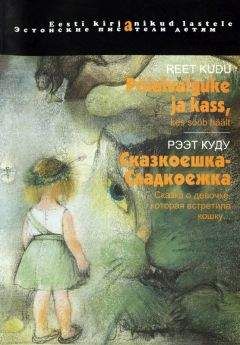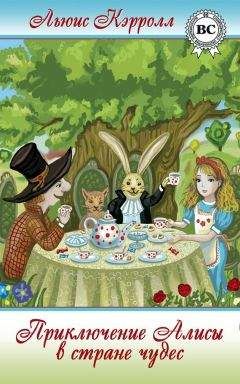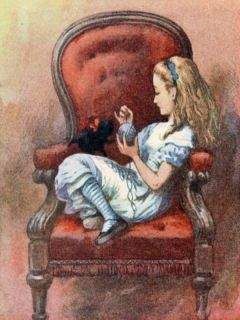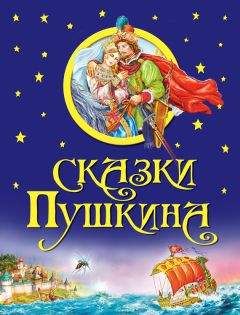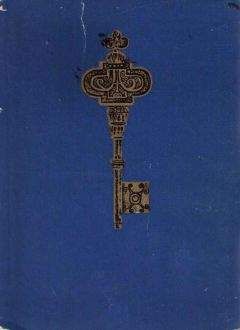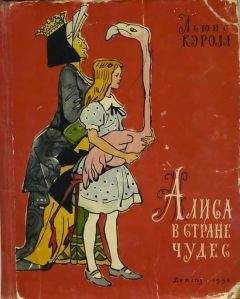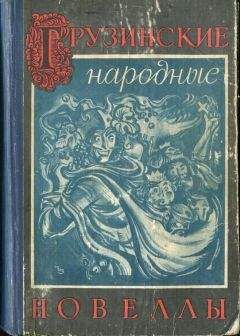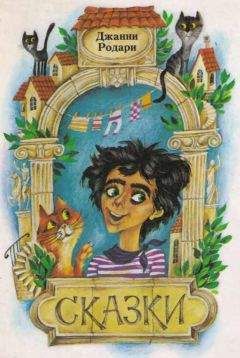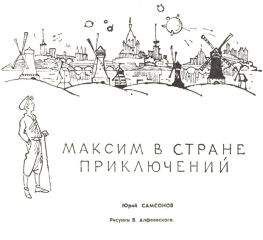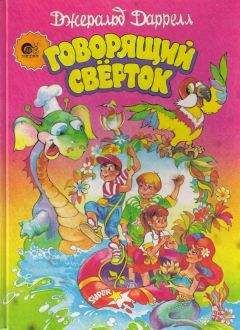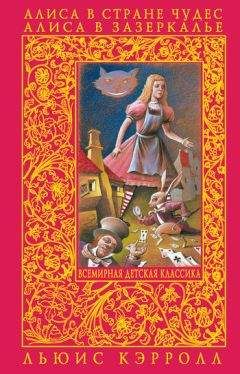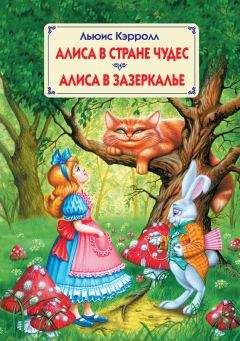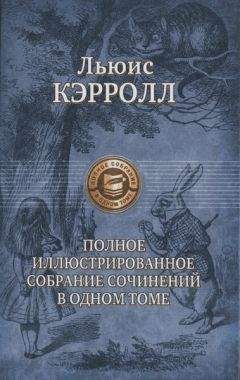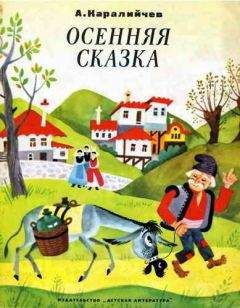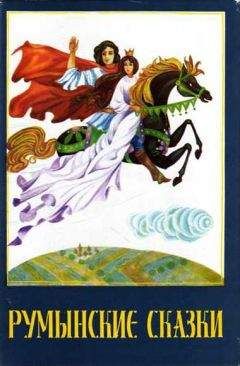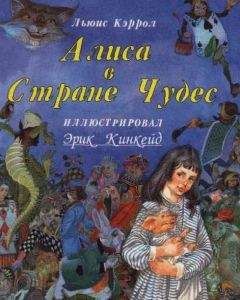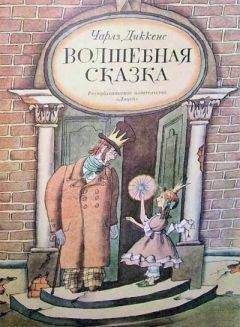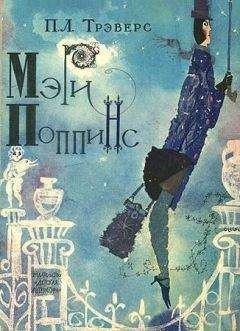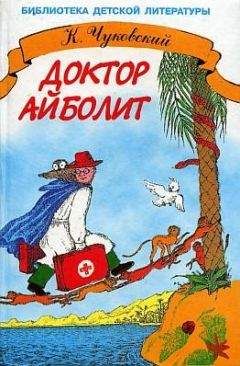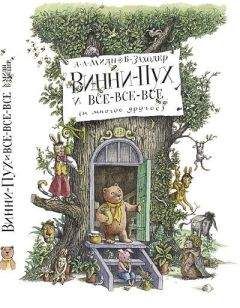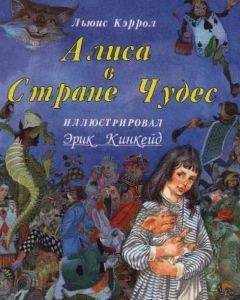Льюис Кэрролл - Alices Adventures in Wonderland. Аня в стране чудес
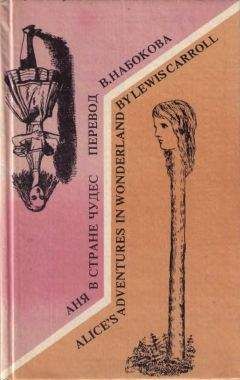
Скачивание начинается... Если скачивание не началось автоматически, пожалуйста нажмите на эту ссылку.
Жалоба
Напишите нам, и мы в срочном порядке примем меры.
Описание книги "Alices Adventures in Wonderland. Аня в стране чудес"
Описание и краткое содержание "Alices Adventures in Wonderland. Аня в стране чудес" читать бесплатно онлайн.
В издании представлены под одним переплетом классическая детская повесть-сказка английского писателя Льюиса Кэрролла в оригинале и ее перевод-пересказ, принадлежащий перу известного русско-американского писателя, классика XX века Владимира Набокова. Издание сопровождается вступительной статьей Нины Демуровой и ее комментариями к тексту.
О набоковском переводе можно еще многое было бы сказать. Например, он весьма удачно справляется с синтаксисом, гораздо более тяжелым в русском языке, чем в английском («в английском, видимо, требуется не столь сложная электропроводка, как в русском», заметит он в 1959 году), свидетельствует начало сказки, где он разрубает большие периоды Кэрролла на более короткие русские фразы и таким образом избегает тяжести, которая неизбежно возникла бы из-за длины русских слов и сложного синтаксиса. Можно было бы писать и о том, как уже здесь он проявляет склонность к прямым калькам с английского — это станет осознанным художественным приемом позднее. И снова то, что впоследствии будет декларировано как «vive le pedant и долой простаков, которые думают, что все хорошо, если передан дух (а слова между тем без присмотра пустились в бега…»),[21] ощущается порой как «неуклюжесть» одаренного юноши, которому еще предстоит — но мы это твердо знаем! — стать мастером.
Конечно, можно было бы и отметить некоторые провалы или просчеты — скажем, между «роялем и слоном» в загадке, которую задает Шляпник, гораздо больше сходства, чем между «вороном и конторкой» (the raven и the desk) у Кэрролла. Или что личные местоимения, как ни странно, представляют некую сложность для молодого переводчика, который заставляет «существ» обращаться к Алисе то на «ты», а то на «вы» (и это одно и то же «существо» и один и тот же разговор, и психологической подоплеки для этого нет никакой), и что он, очевидно, не учитывает, что по английской традиции все сказочные персонажи — существа мужского рода, в то время как в русском языке нет такого строгого ограничения (именно этим объясняется тот странный факт, что у Набокова на яйцах сидит не голубка, а голубь). Но не будем вдаваться во все эти подробности.[22] Нам гораздо важнее сейчас отметить другой факт — что работа над «Страной чудес» проявила ту изначально существовавшую потенциальную соприродность двух авторов. И дело не только в том, что оба страдали бессонницей, были «педантами», увлекались шахматными задачами и кроссвордами (известно, что Нароков немало времени и сил отдал составлению шахматных задач и «крестословиц», что и нашло свое преломление в его творчестве), задумывались о таких метафизических проблемах, как «время», «пустота» или «ничто», имели вкус к конструированию особых слов и миров. Дело еще и в том, что у обоих была та редкая склонность к всевозможной словесной «игре», которая отличает лишь очень немногих. Возможно, что вчитывание в «Страну чудес» в самом начале творческого пути определило — или, скорее, помогло определить — многие темы зрелого, гениального Набокова. И тема сна — перечитайте подряд конец «Страны чудес» и финал «Приглашения на казнь»! — и тема зеркал или двойничества, и неотвязный вопрос «Who are you?», и многое-многое другое. И за это мы должны быть благодарны тому неизвестному нам сейчас человеку, который предложил молодому русскому эмигранту сделать перевод классической детской книжки, написанной скромным английским математиком.
В переводе «Ани» очень чувствуется глубоко личная, «набоковская» тема. Она звучит и в его заменах: скажем, «сироп» вместо английской «патоки» (treacle) в главе о «Безумном чаепитии» заставляет немедленно вспомнить «Другие берега» («За брекфастом яркий паточный сироп, golden syrup, наматывался блестящими кольцами на ложку, а оттуда сползал змеей на деревенским маслом намазанный русский черный хлеб»),[23] а «ангельский» напоминает о том, что в семействе Набоковых слово «английский» произносилось «с классическим ударением (на первом слоге)». И может быть, тот факт, что из всех стихотворений «Страны чудес» Набоков опустил стихотворное посвящение, предваряющее сказку, имеет в этом плане особый смысл.
Alice! A childish story take,
And, with a gentle hand,
Lay it where Childhood’s dreams are twined In
Memory’s dreams mystic band,
Like pilgrims wither’d wreath of flowers
Pluck’d in a far-off land.
Это посвящение Кэрролла, обращенное в прошлое, Набокову было невозможно перевести, ибо оно напоминало — столь живо и ясно! — об утраченном золотом сне, «сказочном счастливом» детстве и годах, проведенных в России…[24]
Н. Демурова
Alice's Adventures in Wonderland
All in the golden afternoon
Full leisurely we glide;
For both our oars, with little skill,
By little arms are plied,
While little hands make vain pretence
Our wanderings to guide.
Ah, cruel Three! In such an hour,
Beneath such dreamy weather,
To beg a tale of breath too weak
To stir the tiniest feather!
Yet what can one poor voice avail
Against three tongues together?
Imperious Prima flashes forth
Her edict 'to begin it':
In gentler tones Secunda hopes
«There will be nonsense in it!»
While Tertia interrupts the tale
Not more than once a minute.
Anon, to sudden silence won,
In fancy they pursue
The dream-child moving through a land
Of wonders wild and new,
In friendly chat with bird or beast —
And half believe it true.
And ever, as the story drained
The wells of fancy dry,
And faintly strove that weary one
To put the subject by,
«The rest next time» — «It is next time!»
The happy voices cry.
Thus grew the tale of Wonderland:
Thus slowly, one by one,
Its quaint events were hammered out —
And now the tale is done,
And home we steer, a merry crew,
Beneath the setting sun.
Alice! A childish story take,
And, with a gentle hand,
Lay it where Childhood’s dreams are twined
In Memory’s mystic band,
Like pilgrim’s wither’d wreath of flowers[25]
Pluck’d in a far-off land.[26]
Christmas-Greetings
Lady dear, if Fairies may
Far a moment lay aside
Cunning tricks and elfish play,
Tis at happy Christmas-tide.
We have heard the children say —
Gentle children, whom we love —
Long ago, on Christmas-Day,
Came a message from above.
Still, as Christmas-tide comes round,
They remember it again —
Echo still the joyful sound
«Peace on earth, good-will to men!»
Yet the hearts must child-like be
Where such heavenly guests abide;
Unto children, in their glee,
All the year is Christmas-tide.
Thus, forgetting tricks and play
For a moment, Lady dear,
We would wish you, if we may,
Merry Christmas, glad New Year!
Christmas, 1867.
I. Down the Rabbit-Hole
Alice was beginning to get very tired of sitting by her sister on the bank, and of having nothing to do: once or twice she had peeped into the book her sister was reading, but it had no pictures or conversations in it, 'and what is the use of a book, thought Alice 'without pictures or conversation?’
So she was considering in her own mind (as well as she could, for the hot day made her feel very sleepy and stupid), whether the pleasure of making a daisy-chain would be worth the trouble of getting up and picking the daisies, when suddenly a White Rabbit with pink eyes ran close by her.
There was nothing so very remarkable in that; nor did Alice think it so very much out of the way to hear the Rabbit say to itself, 'Oh dear! Oh dear! I shall be late!’ (when she thought it over afterwards, it occurred to her that she ought to have wondered at this, but at the time it all seemed quite natural); but when the Rabbit actually took a watch out of its waistcoat-pocket, and looked at it, and then hurried on, Alice started to her feet, for it flashed across her mind that she had never before seen a rabbit with either a waistcoat-pocket, or a watch to take out of it, and burning with curiosity, she ran across the field after it, and fortunately was just in time to see it pop down a large rabbit-hole under the hedge.
In another moment down went Alice after it, never once considering how in the world she was to get out again.
The rabbit-hole went straight on like a tunnel for some way, and then dipped suddenly down, so suddenly that Alice had not a moment to think about stopping herself before she found herself falling down a very deep well.
Either the well was very deep, or she fell very slowly, for she had plenty of time as she went down to look about her and to wonder what was going to happen next. First, she tried to look down and make out what she was coming to, but it was too dark to see anything; then she looked at the sides of the well, and noticed that they were filled with cupboards and book-shelves; here and there she saw maps and pictures hung upon pegs. She took down a jar from one of the shelves as she passed; it was labelled 'ORANGE MARMALADE', but to her great disappointment it was empty: she did not like to drop the jar for fear of killing somebody, so managed to put it into one of the cupboards as she fell past it.
'Well!’ thought Alice to herself, 'after such a fall as this, I shall think nothing of tumbling down stairs! How brave they'll all think me at home! Why, I wouldn't say anything about it, even if I fell off the top of the house!’ (Which was very likely true.)[27]
Down, down, down. Would the fall never come to an end!’I wonder how many miles I've fallen by this time?’ she said aloud. 'I must be getting somewhere near the centre of the earth. Let me see: that would be four thousand miles down, I think- (for, you see, Alice had learnt several things of this sort in her lessons in the schoolroom, and though this was not a VERY good opportunity for showing off her knowledge, as there was no one to listen to her, still it was good practice to say it over) — yes, that's about the right distance-but then I wonder what Latitude or Longitude I've got to?’ (Alice had no idea what Latitude was, or Longitude either, but thought they were nice grand words to say.)
Presently she began again. 'I wonder if I shall fall right through the earth! How funny it'll seem to come out among the people that walk with their heads downward! The Antipathies,[28] I think — (she was rather glad there WAS no one listening, this time, as it didn't sound at all the right word) — but I shall have to ask them what the name of the country is, you know. Please, Ma'am, is this New Zealand or Australia?’ (and she tried to curtsey as she spoke-fancy curtseying as you're falling through the air! Do you think you could manage it?) 'And what an ignorant little girl she'll think me for asking! No, it'll never do to ask: perhaps I shall see it written up somewhere.
Down, down, down. There was nothing else to do, so Alice soon began talking again. 'Dinah'll miss me very much to-night, I should think!’ (Dinah was the cat.)[29] 'I hope they'll remember her saucer of milk at tea-time. Dinah my dear! I wish you were down here with me! There are no mice in the air, I'm afraid, but you might catch a bat, and that's very like a mouse, you know. But do cats eat bats, I wonder?’ And here Alice began to get rather sleepy, and went on saying to herself, in a dreamy sort of way, 'Do cats eat bats? Do cats eat bats?’ and sometimes, 'Do bats eat cats?’[30] for, you see, as she couldn't answer either question, it didn't much matter which way she put it. She felt that she was dozing off, and had just begun to dream that she was walking hand in hand with Dinah, and saying to her very earnestly, 'Now, Dinah, tell me the truth: did you ever eat a bat?’ when suddenly, thump! thump! down she came upon a heap of sticks and dry leaves, and the fall was over.
Подписывайтесь на наши страницы в социальных сетях.
Будьте в курсе последних книжных новинок, комментируйте, обсуждайте. Мы ждём Вас!
Похожие книги на "Alices Adventures in Wonderland. Аня в стране чудес"
Книги похожие на "Alices Adventures in Wonderland. Аня в стране чудес" читать онлайн или скачать бесплатно полные версии.
Мы рекомендуем Вам зарегистрироваться либо войти на сайт под своим именем.
Отзывы о "Льюис Кэрролл - Alices Adventures in Wonderland. Аня в стране чудес"
Отзывы читателей о книге "Alices Adventures in Wonderland. Аня в стране чудес", комментарии и мнения людей о произведении.





